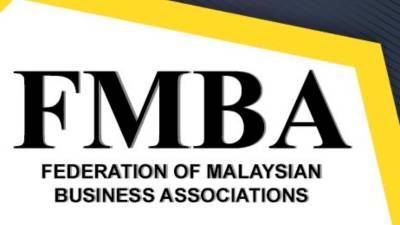KUALA LUMPUR: The Federation of Malaysian Business Associations (FMBA) views Budget 2026 as a pivotal opportunity to reduce business costs, simplify taxes, accelerate digital growth, enhance worker skills, and establish equitable foreign worker policies.
FMBA chairman Datuk Seri Abdul Malik Abdullah stated that as the inaugural budget under the 13th Malaysia Plan and the fourth MADANI Budget, it must carefully balance revenue generation with maintaining business competitiveness amid global uncertainties.
The federation has proposed several key measures focusing on tax restructuring, digital transformation, human capital development, and policy alignment to help businesses thrive while supporting national socio-economic objectives.
One recommendation involves increasing the sales and service tax registration threshold for property rental and leasing companies from RM1 million to RM3 million in annual turnover to account for inflation and changing business scales.
The FMBA also suggests raising the service tax exemption ceiling from RM500,000 to RM3 million to alleviate financial strain on small and medium enterprises grappling with high property costs.
Abdul Malik proposed a gradual service tax implementation timeline starting at 4.0% in 2026 and rising to 8.0% over a decade to prevent sudden cost shocks given that property costs constitute about 20% of business operational expenditure.
He further recommended reducing the service tax to 3.0% for independent restaurants located outside hospitality complexes to enhance food and beverage sector competitiveness and help moderate food price inflation.
On digital transformation, Abdul Malik emphasised the necessity for dedicated funding with straightforward application processes to assist SMEs in adopting mandatory e-invoicing, as system upgrades and compliance are not cost-neutral.
The FMBA’s recommendations align with the government’s National Artificial Intelligence Plan 2026–2030, calling for SME technology adoption incentives and AI financing programmes coupled with workforce reskilling.
These initiatives would ensure businesses across all states benefit equally, preventing a digital divide that could harm Malaysia’s regional competitiveness.
The federation proposes government co-funding for industry-designed training programmes in digital skills and AI applications to support Malaysia’s transition to a high-income economy.
Regarding foreign workforce policy, the FMBA expressed concerns over the mandatory Employees Provident Fund contribution for foreign workers scheduled to start in October 2025.
Abdul Malik warned that operational costs could increase by up to 4.0% if employers absorb both contributions due to likely resistance from temporary foreign workers unsure about withdrawal mechanisms.
He urged the government to postpone the policy’s implementation to allow for extensive industry consultations and the design of a practical framework that avoids passing additional costs to consumers.
The FMBA also suggested a constructive solution to address the government’s financial burden of maintaining illegal immigrants in detention camps nationwide.
Abdul Malik recommended establishing a mechanism where employers cover deportation ticket costs for undocumented workers in exchange for streamlined approval processes for new foreign worker permits.
This win-win approach would reduce government expenditure, generate levy revenue, and ensure continued access to essential foreign labour.
Budget 2026 is scheduled to be tabled by Prime Minister and Finance Minister Datuk Seri Anwar Ibrahim in Parliament on October 10. – Bernama
